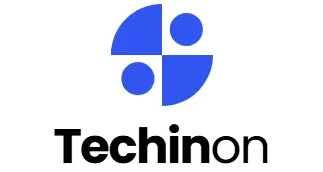Introduction
Quantum computing is no longer an abstract concept studied only by physicists. It’s rapidly becoming a practical tool with the potential to reshape industries, from finance to pharmaceuticals. But here we will discuss which technology is making quantum computing easier to access and adopt?
How is Technology Making Quantum Computing More Accessible?
Quantum Computing Democratization: New platforms and tools are now available that simplify the otherwise intricate realm of quantum physics. Major tech players and startups are investing in making quantum computing more user-friendly. These advances are gradually blurring the lines between traditional and quantum computing.
What Tools are Available for Non-Experts to Use Quantum Computing?
Simplified Quantum Computing: Imagine quantum computers as accessible as today’s laptops. With the integration of intuitive interfaces and software kits tailored for beginners, the vision is turning into reality.
Accessible Quantum Computing Platforms: Firms like IBM and Google are developing cloud-based platforms, allowing users to run quantum algorithms without owning a quantum computer.
What are the Latest Trends in Quantum Computing Adoption?
Quantum Computing in Business: From logistics optimization to drug discovery, industries are realizing the immense potential of quantum computing. Notably, the finance sector is using it for risk analysis and investment strategies.
Quantum Computing Educational Resources: Universities and online platforms are offering courses in quantum computing, making it part of mainstream curricula.
How Can Businesses Benefit from Adopting Quantum Computing?
Quantum Computing Advancements: With faster data processing and high-precision simulations, businesses can gain a competitive edge, enhancing productivity and innovation.
Quantum Computing Integration: Early adopters stand to benefit from streamlined operations, reducing time-to-market and making informed decisions.
Are There Any Online Resources for Learning About Quantum Computing?
Quantum Computing Outreach Efforts: Online forums, webinars, and courses, such as those on Coursera and Udacity, have made learning quantum computing accessible to everyone, regardless of their scientific background.
What Are the Challenges in Adopting Quantum Computing Technology?
Quantum Computing Development: While advancements are rapid, challenges like error correction and qubit stability remain. However, consistent R&D investments ensure we’re on the right track.
Can Individuals with No Background in Quantum Physics Use Quantum Computing?
Quantum Computing for Beginners: Absolutely! Today, with the availability of user-friendly software and platforms, even those unfamiliar with quantum mechanics can dive into quantum computing.
Emerging Innovations: Pushing the Quantum Frontier
Healthcare: The healthcare sector is poised to see groundbreaking advancements, with quantum computing enabling quicker DNA sequencing and more accurate drug molecule simulations, potentially revolutionizing personalized medicine.
Supply Chain and Logistics: Quantum computers can handle vast amounts of data simultaneously. This ability helps optimize routes in real-time, manage inventory more effectively, and even predict disruptions, ensuring smoother operations.
Energy: Quantum computing offers solutions to model complex molecular structures, paving the way for advanced research in sustainable energy sources, such as efficient solar cells or new battery technologies.
What are the Advantages of Simplified Quantum Computing Solutions?
Making Quantum Technology Accessible: Simple interfaces and abstraction layers mean that more individuals, irrespective of their background, can harness the power of quantum computing.
Boosting Quantum Computing Outreach: By simplifying, we’re increasing the rate of quantum literacy, fostering a new generation of quantum enthusiasts who might not have engaged otherwise.
How is Quantum Computing Being Introduced to Educational Curricula?
Incorporation in Mainstream Education: Universities worldwide are beginning to integrate quantum computing modules into their computer science and engineering curriculums. Moreover, schools are introducing quantum basics, ensuring future generations grow up quantum-literate.
Community-Driven Efforts: Workshops, hackathons, and seminars focusing on quantum computing are becoming more commonplace. These community events encourage collaboration and knowledge dissemination, demystifying quantum concepts for the public.
Are There Any Initiatives to Make Quantum Computing More Understandable for Beginners?
Interactive Quantum Simulators: Tools like Quirk allow users to visually construct quantum circuits, providing immediate feedback and making learning engaging.
Gaming and Quantum: Believe it or not, games are being developed to impart quantum principles. These educational tools make understanding quantum fun and interactive.
What Are the Differences Between Traditional Computing and Quantum Computing Adoption Challenges?
Infrastructure: Traditional computers rely on silicon-based technology that’s become standardized. Quantum computers, however, operate on entirely different principles, meaning new infrastructure and large-scale investments are required.
Skill Gap: While traditional coding knowledge is widespread, quantum computing still has a steeper learning curve, demanding new skill sets.
Thermal Management: Quantum computers operate at temperatures near absolute zero, making thermal management a unique challenge compared to traditional computing.
Future Glimpses: What Awaits Us in the Quantum Age?
As we march ahead, we can expect quantum computing to become a staple in research institutions and businesses. Innovations are making quantum computers more stable, scalable, and accessible. Soon, we might see hybrid models where traditional and quantum computing coexist, offering the best of both worlds.
Furthermore, as quantum computing integrates into our technological ecosystem, its potential applications will only grow. From revolutionizing cryptography to solving problems deemed unsolvable by classical computers, the quantum age promises a future brimming with possibilities.
FAQs
1. What programming languages are suitable for quantum computing development?
Languages like Q# from Microsoft and Qiskit from IBM are specially designed for quantum computing.
2. How does quantum computing democratization impact scientific research?
It accelerates research by offering advanced computation capabilities, especially in fields like chemistry and climate modeling.
3. What role does cloud computing play in accessible quantum technology?
Cloud platforms are making quantum computing accessible to the masses, offering quantum computation without the need for hardware.
4. How can someone without a technical background get started with quantum computing?
Begin with online courses that introduce quantum principles in a simplified manner. Many platforms offer hands-on exercises using real quantum computers.
Also Read: What Does Accenture Recommend Quantum Computing Early Adopters do to Gain a Competitive Advantage?
Final Words
The vastness of the quantum realm is no longer restricted to the hallowed halls of research institutions. It’s making its way into our classrooms, businesses, and homes. As we stand on the cusp of this new era, there’s never been a more exciting time to delve into quantum computing.
In wrapping up this article, we aspire to have given you a comprehensive understanding of “Which Technology is Making Quantum Computing Easier to Access and Adopt?” and its implications, arming you with the knowledge necessary to navigate this area successfully.

